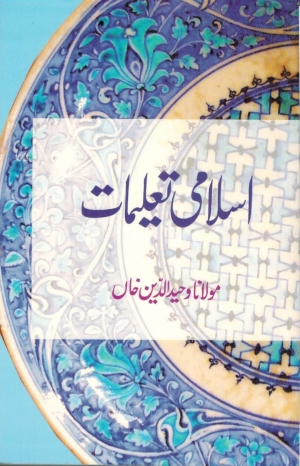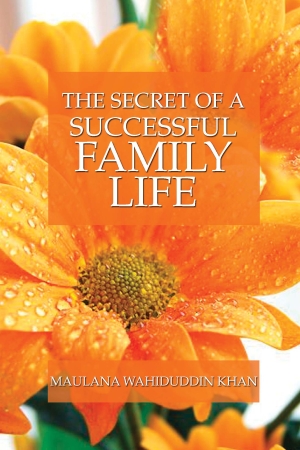Islam attaches such great importance to learning that the Quran says: “Only those of His servants who possess knowledge, fear God.” (35:28). Scholars are considered to be like angels (3:18), given their potential for discovering the oneness and the glory of the Creator. To inculcate this importance of knowledge in the minds of the believers, the Prophet observed that the worship of a learned man is a thousand times better than that of the ignorant worshipper (Mustadrak al-Hakim). By way of encouraging reflection on the universe and nature in order to explore divine glories, the Prophet is reported to have said: “An hour of reflection is better than a hundred years of worship without reflection.” (Al-Bayhaqi)
From the Islamic point of view, A sane society is but an extension of a sane family. Human society is nothing other than a single-family gradually extended throughout history. That is why Islam has greatly emphasized the significance of family life being disciplined and well-organised so that it may play its part in maintaining social stability.
A society composed of such homes or training units where these values are embodied will never suffer from the chaos and destructive instabilities that modern societies are suffering nowadays.
Featured Articles
Featured Videos
FAQs
Islam encourages the education of women. A study of the life of the Prophet of Islam tells us that education is as essential for women as it is for men. The actual goal of education from the Islamic point of view is to make a person aware. And without doubt it is only aware men and women who can conduct the practical matters of life smoothly.
We find an example in this connection in the life of the Prophet of Islam in relation to his wife Aisha. There are many reports that tell us that the Prophet’s conversations with Aisha were aimed at educating her.
Aisha says that when the Prophet of Islam would get up at night after a few hours, in that peaceful atmosphere he would converse with her for a long time. (Sahih al-Bukhari, Hadith No. 1161; Sahih Muslim, Hadith No. 743) This course of informal education continued uninterrupted, for Aisha used to accompany the Prophet even on his journeys.
This informal education was so important for Aisha that she became the most distinguished personality so far as religious knowledge was concerned. She survived the Prophet for a full fifty years. Throughout this period she remained a very valuable source for the acquisition of religious knowledge. Her house served as a school of religious learning.
Source: Hijab in Islam
Islam inspires and propels its followers to seek knowledge for the pleasure of their Lord, and to work towards and facilitate promotion and welfare of humanity. In other words, the motto of education in Islam is acquisition of knowledge for the sake of serving God and His creatures. That is why throughout Islamic history, equal attention has been paid to the learning of both the religious sciences and the natural sciences.
Islam places great emphasis on learning. The Quran and Hadith both hold men of knowledge preferable to the ignorant (39: 9). The books of Hadith have a whole lengthy chapter devoted to the importance of knowledge, and the rewards of teaching and learning.
For instance, there is a saying of the Prophet that, one who treads a path in search of knowledge has his way paved to Paradise by God as a reward for this noble deed. (Sahih Muslim, Hadith No. 2699) According to another saying, angels in heavens, fish in the water and ants in their dwellings pray for the well-being of a seeker of knowledge. (Sunan al-Tirmidhi, Hadith No. 2682)
In another Hadith, the Prophet of Islam observed, those who learn virtues and teach it to others are the best among humankind. (Shu'ab al-Iman by Al-Bayhaqi, Hadith No. 1767)
The mission of the Prophet of Islam has been introduced in the Quran as an instructor of the Book and a teacher of wisdom.
At the time of the revelation, few people could read and write. They made the maximum use of their abilities to memorize their learnings, preserving their entire literary heritage in their memory. There was no trace of any systematic or organized activity of learning or teaching in Arab society of the time. But soon after the revelation of the Quran, the trend of education set in. Everyone who accepted Islam learnt the Quran from the Prophet, and after learning taught others who desired to learn. In this way, the homes of the early Muslims—Abu Bakr Siddiq, Al-Arqam bin Al-Arqam, Fatima bint Khattab—turned into centres of learning.
Source: Spirit of Islam July 2020
The following words come in the Quran, “My Lord! Increase my Knowledge.” (20: 114)
The mission of the Prophet of Islam has been introduced in the Quran at more than one place as an instructor of the Book and a teacher of wisdom. Here is a verse from the Quran: “It is He who has raised among the unlettered people a messenger from among themselves who recites His revelations to them, and purifies them, and teaches them the Book and wisdom.” (62: 2)
Similarly, on another occasion, the Prophet of Islam presented himself before the people saying, “I have been sent only as a teacher.” The first word revealed in the form of the Quran was ‘Iqra’ or ‘Read’ (96: 1). The fourth verse of the first revelation forming part of the chapter Al-Qalam says: “God has taught man by the pen.” (96: 4)
We find more than 1500 derivatives and synonyms of the word Ilm, that is, knowledge in the Quran. In this light, it becomes easy to understand how the revelation of the Quran, in this almost illiterate nation of Arabia set off such a wave of receiving and imparting education which can rightly be called a learning explosion.
The revolution brought about by this learning explosion ushered in a new age of highly developed culture and civilization not only in Arabia but all over the world. This is a fact that has been acknowledged by historians. For instance, the Indian historian, T. Rama Rao, begins his biography of the Prophet of Islam with these words: “When he appeared, Arabia was a desert—a nothing. Out of nothing of the desert, a new world was fashioned by the mighty spirit of Muhammad. A new life, a new culture, a new civilization, and a new kingdom, which extended from Morocco to India and influenced the thought and life of three continents—Asia, Africa, and Europe.” (Life of Muhammad)
Source: Spirit of Islam June 019
Chapter 46 of the Quran states: “We have enjoined on man kindness to his parents: his mother bore him in pain and in pain she gave birth to him, and his bearing and weaning takes thirty months. At length, when he reaches the age of full maturity and attains forty years, he says, ‘O my Lord! Help me to be grateful for Your favours which You have bestowed upon me, and upon both my parents, and to do good deeds that will please You. Grant me righteousness in my offspring. Truly, I have turned to You and, truly, I submit to You.’ We accept from such people the best of what they do and We overlook their bad deeds. They will be among the people of Paradise—this is a true promise that has been given to them.” (46:15-16)
Human procreation takes place through a father and a mother who nurture their offspring through infancy to adulthood. This is, so to say, the natural system of a person’s training, which ensures that he develops a keen consciousness of his duties towards human beings along with the feeling that he must acknowledge the grace of his Benefactor and discharge his duties towards Him. This feeling cultivates two principles in every person: firstly, to honour his pledges towards other people and, secondly, to fulfil important obligations to God, the Creator and Lord.
Those who learn a lesson from nature, the great teacher, who activate their sense of moral awareness to the extent that they properly identify and appropriately fulfil their duties towards all, ranging from their parents right up to God, are the ones who will be treated as deserving of the eternal grace of God in the Hereafter.
Everyone’s home is his first training ground. This training begins with one’s parents and then spreads out into the entire society. If a person fully accepts this training in the initial training ground, he will be able to fulfil not only the rights and obligations of God’s servants but also on a vaster scale, the obligations he owes to God as well.
The home is the training ground of informal education. Education means the training of the mind, with special emphasis on inculcating high values. To spread spiritual values in society, we need value-based education, especially during schooling, which is a preparatory period of life, and if we want to build a spiritual society, we must adopt a spirituality-oriented form of education. The home is the training ground for such education.
Source: The Spirit of Islam










